In an increasingly globalized and interconnected world, the need for efficient and adaptable housing solutions to support remote work sites has become a pressing challenge for industries ranging from construction and mining to oil and gas. As companies seek to expand their operations into more remote and isolated locations, the provision of comfortable, secure, and resilient temporary accommodations for their workforce has become a critical priority, one that requires innovative thinking and a deep understanding of the unique logistical and operational demands inherent to these dynamic work environments.
Recognizing this growing need, Lida Group, a leading innovator in the prefabricated building and container-based construction industries, has developed a groundbreaking suite of modular temporary labor camp solutions that are redefining the standards of efficiency, adaptability, and user experience in the realm of remote work site housing.
“When workers are deployed to remote locations, providing them with comfortable, safe, and functional temporary accommodations is essential not only for their well-being but also for the overall productivity and success of the project,” explains the head of Lida Group’s temporary labor camp division. “Our team has dedicated itself to developing a range of modular building systems that can be swiftly deployed, seamlessly integrated into even the most challenging environments, and meticulously crafted to ensure the long-term resilience and satisfaction of the individuals who will be calling these temporary work camps their home.”
At the heart of Lida Group’s modular temporary labor camp solutions lies a strategic blend of cutting-edge prefabrication techniques, specialized container-based design, and comprehensive remote work site logistics. By harnessing the inherent advantages of off-site manufacturing and the mobility of shipping containers, the firm has created a diverse portfolio of modular building systems that can be rapidly produced, efficiently transported, and quickly assembled to provide secure, comfortable, and adaptable temporary accommodations for workers in even the most remote and isolated locations.
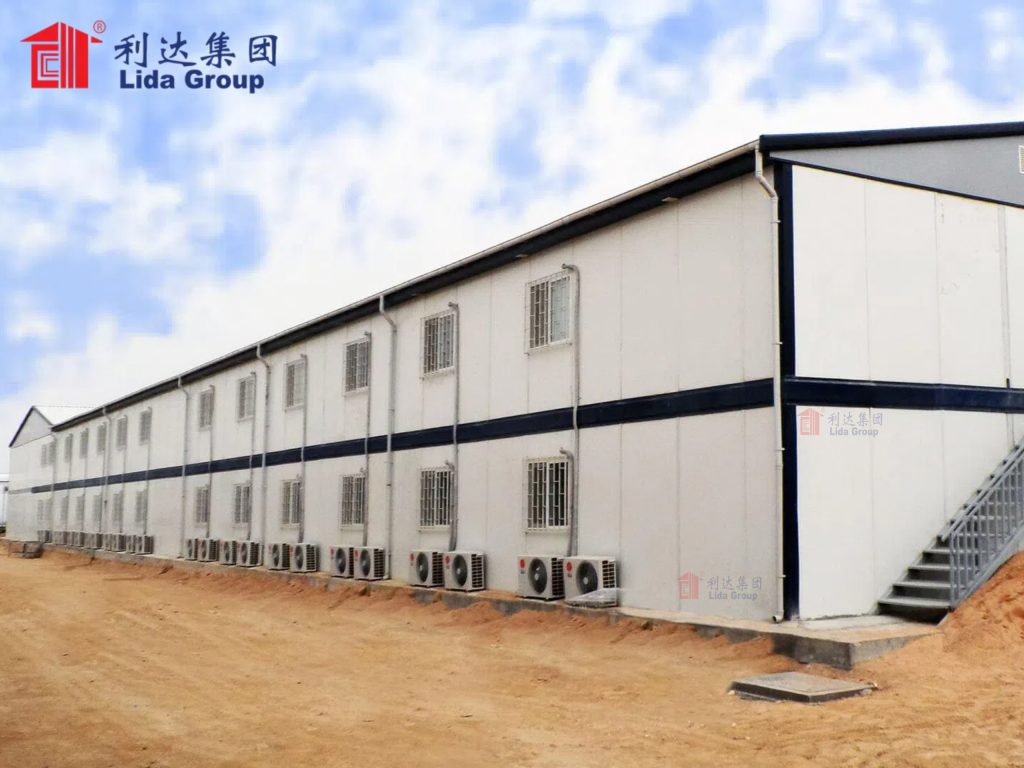
“The container format is the foundation of our approach to modular temporary labor camps because it allows us to leverage the inherent durability, mobility, and scalability of these specialized structures,” the head of the temporary labor camp division explains. “By integrating our prefabricated building components into these robust, standardized containers, we’re able to create a range of modular housing units that can be swiftly deployed, seamlessly installed, and easily adapted to meet the unique needs and preferences of workers, regardless of the specific challenges they may face in the remote work site environments they are serving.”
One of the key advantages of Lida Group’s prefab and container-based modular temporary labor camp models is their unparalleled speed of deployment. Recognizing the critical importance of providing immediate and reliable accommodations for workers in remote locations, the firm has invested heavily in developing specialized transportation logistics, modular assembly systems, and comprehensive on-site integration protocols that enable their modular housing units to be swiftly delivered and effortlessly installed, even in the most challenging of environments.
“When workers are deployed to remote work sites, the ability to rapidly provide them with comfortable and secure temporary accommodations can be the difference between project success and failure,” the head of the temporary labor camp division emphasizes. “Our clients, which include leading construction firms, mining companies, and oil and gas operators, often face complex logistical challenges and intense time pressures, so the speed and efficiency with which we can deliver our modular temporary labor camp models to those in need is a crucial differentiator that sets us apart in the market.”
To achieve this level of rapid deployment, Lida Group has implemented a comprehensive suite of specialized tools and techniques, including advanced transportation logistics, modular assembly systems, and comprehensive on-site integration protocols. By carefully optimizing every aspect of the deployment process, the firm is able to ensure that their container-based modular temporary labor camp units can be swiftly and efficiently installed, without disrupting the existing infrastructure or compromising the overall safety and well-being of the occupants.
“Our rapid deployment capabilities are the result of years of research, development, and hands-on experience in the field of remote work site accommodations,” the head of the temporary labor camp division explains. “By constantly refining our processes, investing in cutting-edge technologies, and fostering a culture of innovation, we’re able to deliver modular building systems that can be seamlessly integrated into even the most complex and challenging environments, ensuring that workers have access to the secure, comfortable, and responsive temporary accommodations they need to thrive in remote work site settings.”
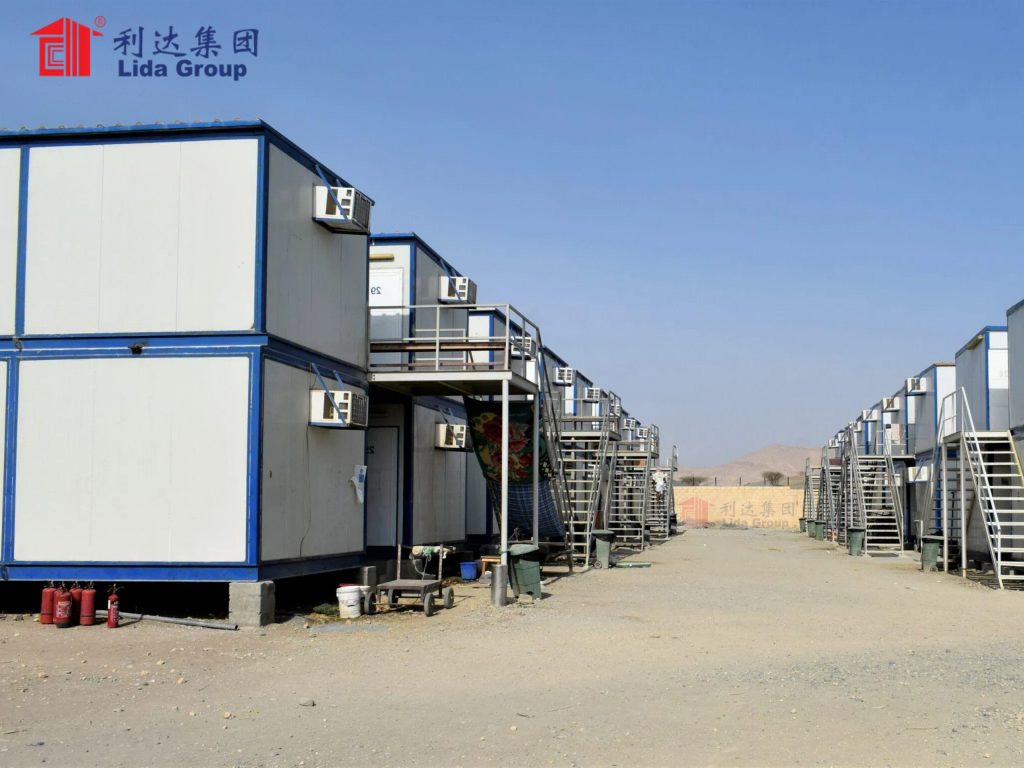
Alongside Lida Group’s focus on rapid deployment, the firm’s modular temporary labor camp models also prioritize the strategic incorporation of comprehensive durability and resilience features, designed to withstand the most demanding environmental conditions and provide long-lasting protection for those living and working in remote locations.
“Durability and resilience are essential elements of our modular temporary labor camp models because they ensure that the accommodations we provide can withstand the rigors of remote work site environments and continue to serve the needs of workers over an extended period of time,” the head of the temporary labor camp division explains. “By leveraging specialized construction techniques, premium-quality materials, and advanced structural reinforcement systems, we’re able to craft container-based housing units that are not only exceptionally resilient but also remarkably comfortable and user-friendly, even in the face of the most challenging environmental conditions.”
One of the key ways Lida Group has been able to enhance the durability and resilience of its modular temporary labor camp models is through the strategic integration of advanced structural engineering and comprehensive materials testing. By harnessing the power of cutting-edge computational design tools and conducting rigorous performance evaluations, the firm is able to craft container-based building systems that can withstand the destructive forces of natural disasters, extreme weather, and the rigors of remote work site operations, providing secure and reliable temporary accommodations for workers in even the most challenging environments.
“Structural integrity and material performance are critical factors in the design of our modular temporary labor camp models because they directly impact the ability of these structures to protect and safeguard the individuals who will be calling them home,” the head of the temporary labor camp division emphasizes. “By continuously optimizing our design and manufacturing processes, and investing in comprehensive testing and evaluation, we’re able to deliver container-based housing units that are not only exceptionally resilient but also remarkably well-suited to the specific challenges and environmental conditions inherent to remote work site scenarios.”
Integral to the success of Lida Group’s modular temporary labor camp models is the firm’s strategic focus on comprehensive customization and adaptability features, enabling their prefab and container-based building systems to be seamlessly tailored to the unique needs and preferences of diverse user groups and project locations.
“Customization and adaptability are essential elements of our modular temporary labor camp models because they allow us to deliver accommodations that are truly responsive to the specific requirements of each remote work site, project, and individual worker,” the head of the temporary labor camp division explains. “By incorporating innovative design features and specialized manufacturing techniques, we’re able to craft container-based housing units that can be easily reconfigured, expanded, or even relocated to ensure that workers always have access to the secure, comfortable, and tailored accommodations they require in even the most remote and challenging of work environments.”
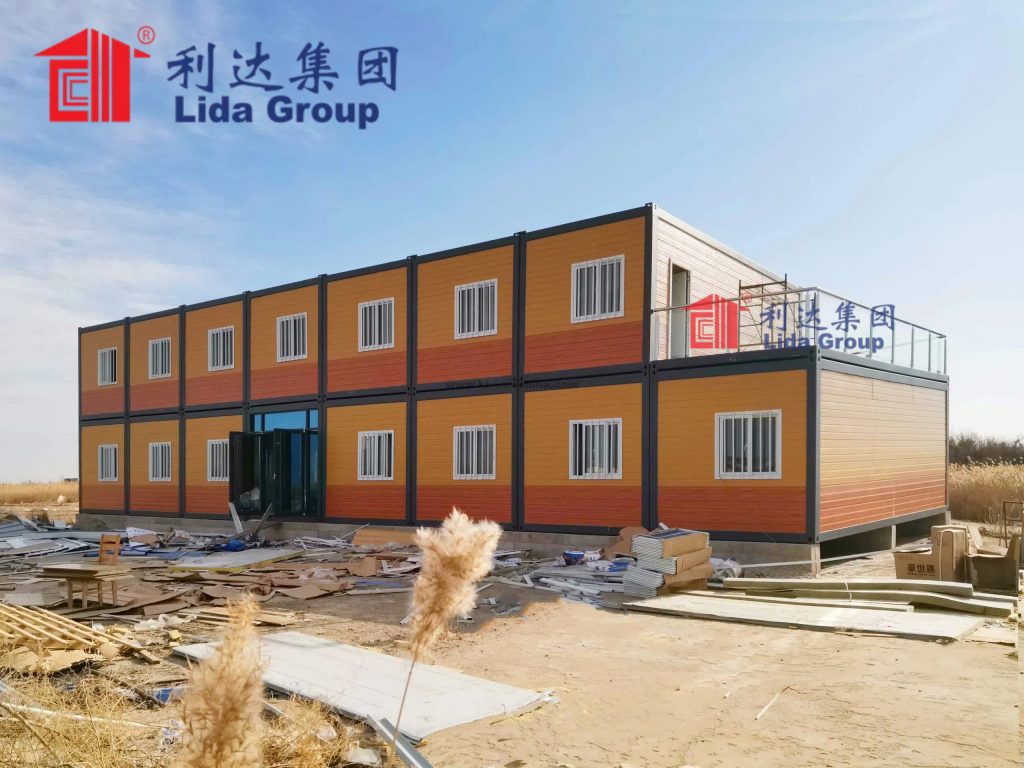
One of the key ways Lida Group has been able to enhance the customization and adaptability of their modular temporary labor camp models is through the strategic integration of advanced computational design workflows and specialized fabrication processes. By harnessing the power of cutting-edge digital tools and specialized manufacturing techniques, the firm is able to craft container-based housing systems that can be efficiently customized, reconfigured, and adapted to suit the specific requirements of each remote work site project, construction initiative, or resource extraction operation – a capability that is particularly crucial in the face of rapidly changing environmental conditions and evolving user needs.
“Computational design and specialized fabrication are at the heart of our approach to modular temporary labor camp models because they provide our clients with the flexibility and responsiveness they need to effectively manage the changing requirements of the workers they are serving in remote work site environments,” the head of the temporary labor camp division explains. “Whether it’s a need for additional housing capacity, a reconfiguration of the existing layout, or a relocation to a new site, our container-based housing units can be seamlessly adapted to ensure that workers always have access to secure, comfortable, and tailored temporary accommodations, even in the most challenging of remote work site settings.”
Integral to Lida Group’s success in delivering exceptional customization and adaptability within their modular temporary labor camp models is the firm’s strategic focus on comprehensive user research and data-driven design workflows. By conducting in-depth surveys, focus groups, and on-site observations, Lida Group is able to gain a deep understanding of the unique needs, preferences, and pain points of the workers they serve – insights that are then used to inform the design, development, and deployment of their container-based housing systems.
“User experience is at the forefront of our modular temporary labor camp model design process,” the head of the temporary labor camp division emphasizes. “By leveraging a wealth of user insights and data-driven design strategies, we’re able to craft container-based housing units that not only meet the practical requirements of our clients but also captivate the senses, foster a genuine sense of comfort and well-being, and enhance the overall satisfaction and long-term resilience of the workers who will be calling these temporary accommodations their home in remote work site settings.”
One of the ways Lida Group has been able to translate these user insights into exceptional customization and adaptability features within their modular temporary labor camp models is through the strategic integration of advanced spatial planning and layout optimization algorithms. By harnessing the power of cutting-edge computational tools, the firm is able to efficiently analyze the unique needs and preferences of each remote work site project, construction initiative, or resource extraction operation, and then seamlessly translate those insights into container-based housing systems that can be quickly and easily reconfigured to deliver the optimal temporary living environment for the workers who will be occupying them.
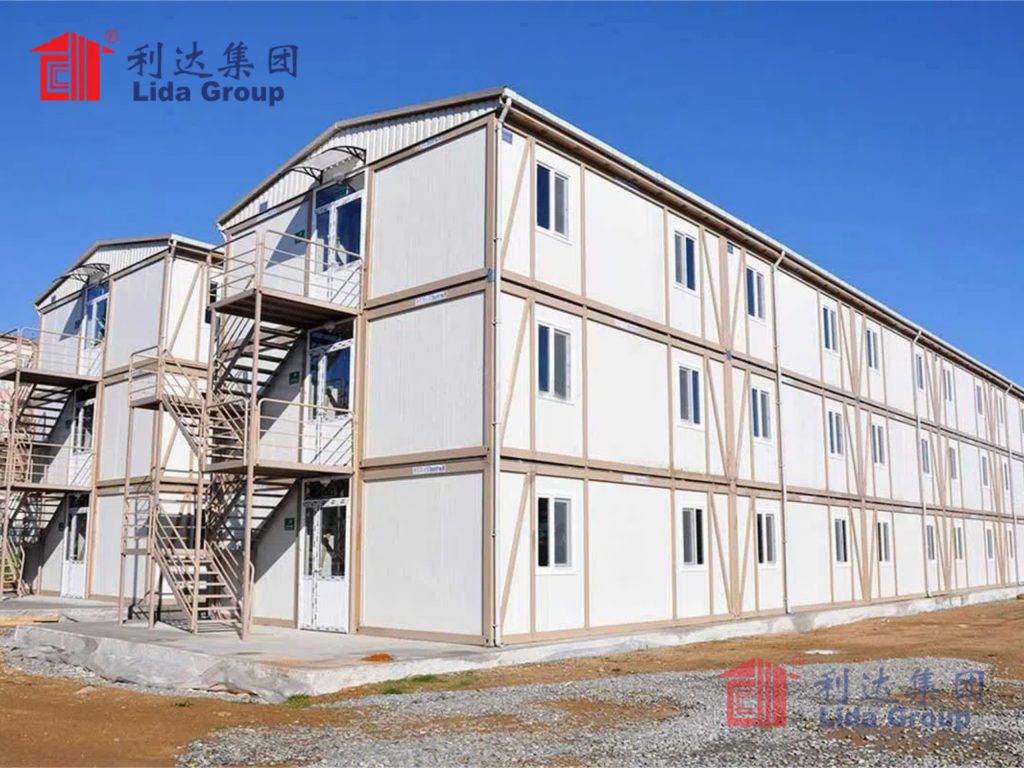
“Our computational design workflows and specialized fabrication techniques allow us to craft modular temporary labor camp models that are not only highly customizable but also remarkably responsive to the evolving needs of our clients and end-users,” the head of the temporary labor camp division explains. “By continuously refining our design algorithms and manufacturing processes, we’re able to deliver container-based housing solutions that can be efficiently adapted and reconfigured to suit the unique requirements of each remote work site project, construction initiative, or resource extraction operation, ensuring that workers always have access to the secure, comfortable, and tailored temporary accommodations they need, regardless of their situation or the specific challenges they may face.”
Alongside Lida Group’s focus on rapid deployment, comprehensive durability, and strategic customization, the firm’s modular temporary labor camp models also prioritize the incorporation of advanced safety and security features, designed to protect the well-being of the workers they serve in remote work site environments.
“Safety and security are non-negotiable elements of our modular temporary labor camp models because they directly impact the ability of these structures to safeguard the lives and well-being of the occupants,” the head of the temporary labor camp division emphasizes. “By integrating advanced fire suppression systems, robust access control mechanisms, and comprehensive emergency response protocols, we’re able to craft container-based housing units that not only provide a secure and comfortable temporary living environment but also ensure the protection and well-being of the workers who will be relying on them in remote work site settings.”
One of the key ways Lida Group has been able to enhance the safety profile of its modular temporary labor camp models is through the strategic integration of cutting-edge technology and data-driven monitoring systems. By incorporating sophisticated surveillance cameras, intelligent access control systems, and real-time incident response management tools, the firm is able to deliver container-based housing solutions that are not only exceptionally secure and well-protected but also highly responsive to the evolving safety needs of their end-users.
“Technological integration and data-driven safety monitoring are essential components of our approach to modular temporary labor camp model design,” the head of the temporary labor camp division explains. “By seamlessly incorporating these advanced safety features into the very fabric of our container-based housing units, we’re able to create temporary accommodations that not only provide a remarkable level of comfort and user-friendliness but also deliver unparalleled levels of protection and security, even in the most challenging of remote work site scenarios.”
In addition to Lida Group’s focus on safety and security, the firm’s modular temporary labor camp models also prioritize the strategic incorporation of comprehensive sustainability features and environmentally-responsible design strategies. Recognizing the critical role that eco-friendly temporary housing solutions play in promoting the overall well-being, resilience, and long-term viability of the workers they serve, Lida Group has dedicated itself to developing container-based building systems that not only meet the practical needs of their clients but also contribute to the environmental and social responsibility of the remote work site projects, construction initiatives, and resource extraction operations they support.

“Sustainability and environmental responsibility are not just buzzwords for us; they’re fundamental pillars of our approach to modular temporary labor camp model design,” the head of the temporary labor camp division explains. “By harnessing the inherent sustainability advantages of our container-based construction techniques, incorporating cutting-edge energy-efficient systems, and prioritizing the use of renewable, low-impact resources, we’re able to craft temporary accommodations that are not only remarkably user-friendly and long-lasting but also remarkably eco-responsible and supportive of the overall well-being and resilience of the workers they serve.”
One of the key ways Lida Group has been able to enhance the environmental performance of its modular temporary labor camp models is through the strategic integration of advanced energy-saving technologies and comprehensive renewable energy systems. By incorporating high-efficiency HVAC units, integrated solar panels, and sophisticated water management solutions, the firm is able to deliver container-based housing systems that are not only exceptionally comfortable and user-friendly but also capable of significantly reducing their carbon footprint and contributing to the overall sustainability of the remote work site projects, construction initiatives, and resource extraction operations they support.
“Energy efficiency and renewable energy integration are essential components of our approach to sustainable modular temporary labor camp model design,” the head of the temporary labor camp division emphasizes. “By seamlessly incorporating these advanced green building technologies into the very fabric of our container-based housing units, we’re able to create temporary accommodations that are not only exceptionally comfortable and user-friendly but also remarkably eco-friendly and self-sufficient, even in the most remote and challenging of work site environments.”
In addition to Lida Group’s focus on energy efficiency and renewable energy solutions, the firm’s modular temporary labor camp models also prioritize the strategic use of low-impact, environmentally-responsible materials and comprehensive life cycle assessments to ensure the long-term sustainability of the temporary housing they create. By carefully selecting premium-quality components, recycled or repurposed finishing elements, and conducting comprehensive life cycle analyses, Lida Group is able to craft container-based housing units that not only meet the highest standards of quality and durability but also contribute to the overall environmental well-being of the remote work site projects, construction initiatives, and resource extraction operations they serve.
“The materials we choose for our sustainable modular temporary labor camp models are just as important as the advanced green building technologies we integrate,” the head of the temporary labor camp division explains. “By prioritizing the use of low-impact, renewable, and recyclable materials, and conducting comprehensive life cycle assessments, we’re able to deliver container-based housing units that are not only visually appealing and user-friendly but also remarkably eco-responsible and future-proof, even in the demanding conditions of remote work site environments.”
Lida Group’s pioneering efforts in the realm of modular temporary labor camp models have not only positioned the firm as a global leader in the provision of rapidly deployable, durable, and sustainable temporary accommodations for remote work sites but have also had a profound impact on the way businesses, organizations, and government agencies approach the challenge of supporting their workforce in even the most isolated and challenging of work environments.
Through their strategic focus on advanced prefabrication techniques, cutting-edge computational design workflows, and comprehensive safety and sustainability features, Lida Group has been able to redefine the very concept of what’s possible in the realm of modular temporary housing, delivering a range of container-based building systems that can be swiftly deployed, seamlessly integrated into the most challenging environments, and meticulously crafted to ensure the well-being and long-term resilience of the workers they serve.
By seamlessly blending container-based construction, sophisticated computational design tools, and a deep understanding of the evolving needs and preferences of diverse user groups, Lida Group has been able to craft modular temporary labor camp models that not only meet the practical requirements of their clients but also captivate the senses through their exceptional craftsmanship, sophisticated spatial qualities, and unparalleled environmental responsibility. Through the strategic integration of comprehensive user research, data-driven customization, and a steadfast focus on enhancing the human experience, the firm has established itself as a trusted partner in the creation of resilient, future-proof temporary housing solutions that contribute to the overall well-being, satisfaction, and long-term resilience of the workers they serve, regardless of the specific challenges they may face in remote work site environments.
As the global economy continues to expand into more remote and isolated locations, driven by factors ranging from resource extraction to large-scale infrastructure projects, Lida Group’s expertise in modular temporary labor camp models has become increasingly critical. Through their strategic use of advanced materials, comprehensive green building technologies, and a commitment to delivering exceptional user experiences, the firm has positioned itself as a trailblazer in the realm of remote work site accommodations, setting a new standard for the industry to follow.
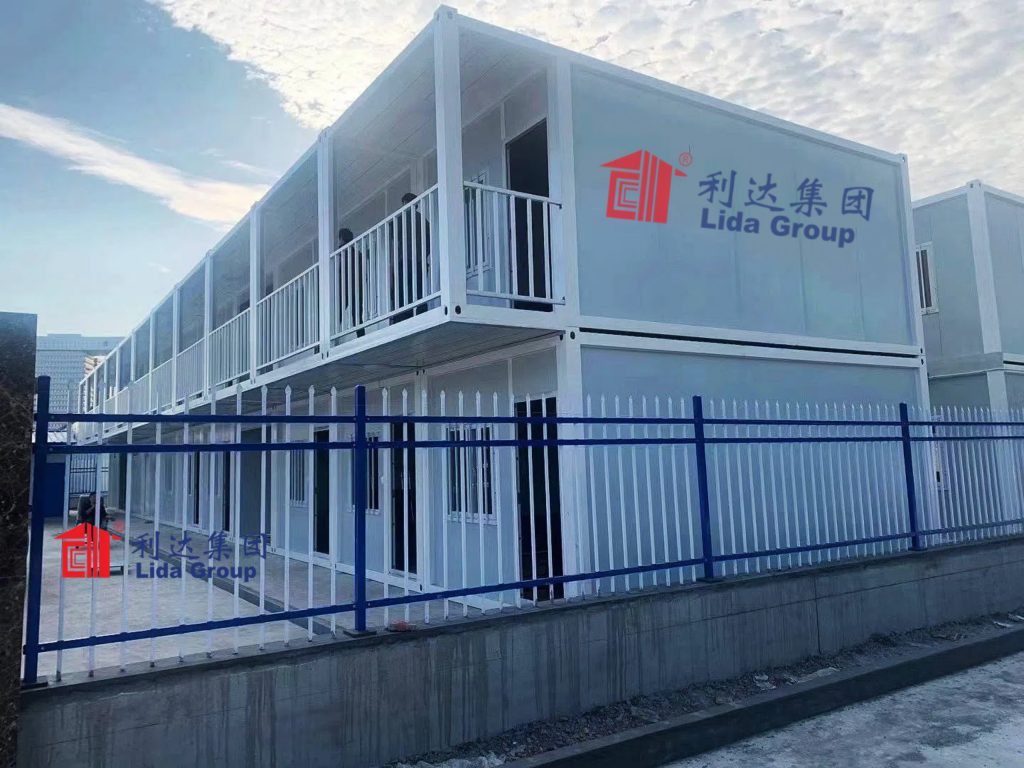
Lida Group’s legacy of innovative and sustainable modular temporary labor camp models is not just a testament to the firm’s technical prowess; it is a reflection of their unwavering dedication to the creation of a more equitable, responsive, and environmentally-responsible built environment, even in the face of the most challenging remote work site scenarios. By delivering container-based housing units that can enhance the overall human experience, contribute to the long-term social and environmental well-being of workers, and captivate the senses through their elegant design, Lida Group has become a trusted partner in the development of cutting-edge, high-performing, and future-proof temporary accommodations for remote work sites.
As the world continues to grapple with the increasing demand for efficient, durable, and sustainable temporary housing solutions to support remote work environments, Lida Group’s modular temporary labor camp models will undoubtedly play a pivotal role in shaping the future of this critical industry. Through their tireless commitment to innovation, user-centric design, and environmental responsibility, the firm has established itself as a global leader in the provision of resilient, future-proof, and exceptionally well-crafted temporary accommodations that empower workers, enhance project outcomes, and contribute to a more sustainable and equitable built environment, even in the most challenging of remote work site scenarios.
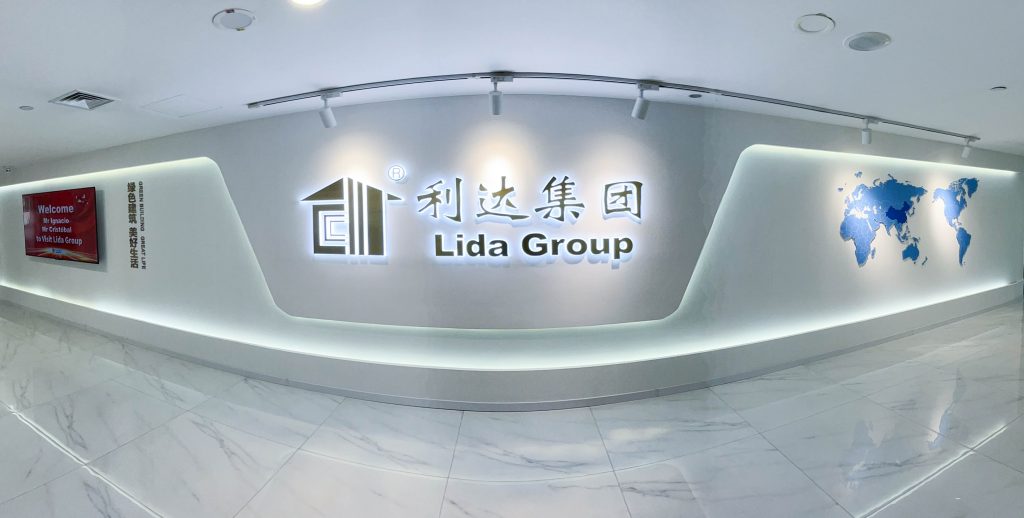
Related news
-
Lida Group Introduces Advanced Mobile Temporary Houses Designed for Flexibility and Durability Anywhere.
2025-03-12 15:21:29
-
The Versatility of Lida Group's Mobile Temporary Houses Meets Diverse Needs from Urban to Remote Locations.
2025-03-12 15:21:42
-
Lida Group's Emergency House Models Set New Benchmarks for Speed and Quality in Temporary Housing Solutions.
2025-03-12 14:58:46
contact us
- Tel: +86-532-88966982
- Whatsapp: +86-13793209022
- E-mail: sales@lidajituan.com


